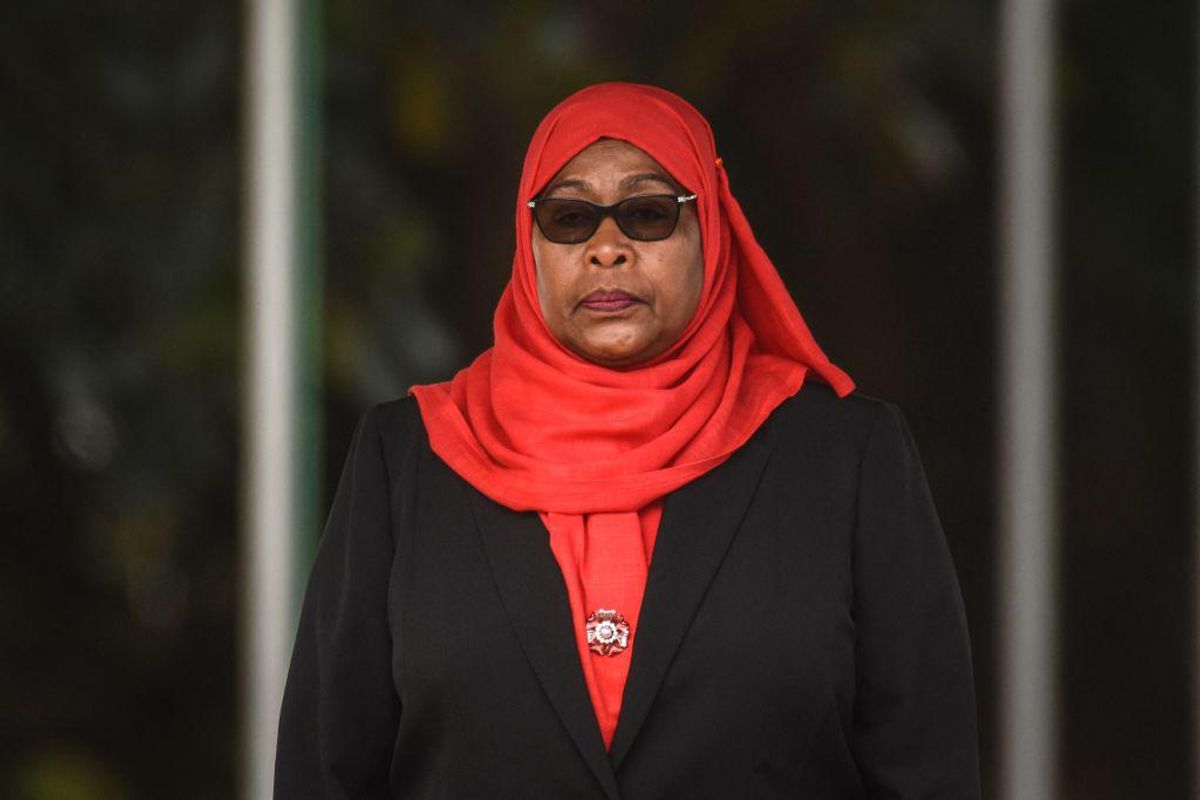
New Tanzanian President Samia Suluhu Hassan, inspects a military parade following her swearing in the country's first female President after the sudden death of President John Magufuli at statehouse in Dar es Salaam, Tanzania on March 19, 2021.
Photo by Getty Images


